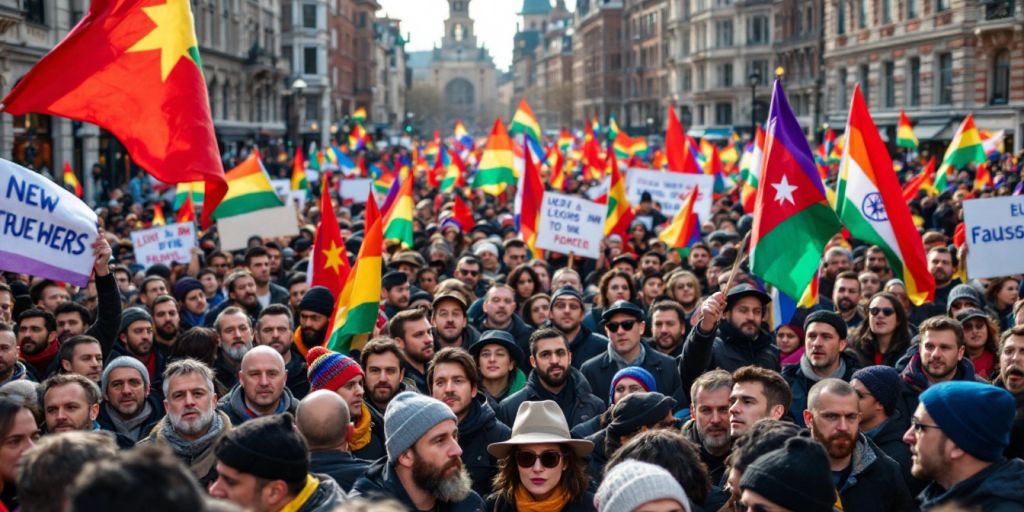Thousands of people took to the streets in Portugal on November 10, 2024, demanding higher wages and pensions, as well as improvements to social services such as housing and healthcare. The protests, organized by the General Confederation of the Portuguese Workers (CGTP), occurred in the cities of Porto and Lisbon, highlighting the ongoing struggles faced by workers in one of Western Europe’s poorest countries.
Background of the Protests
The protests were part of a month-long campaign under the slogan “Increase Salaries and Pensions, Solve the Country’s Problems.” Tiago Oliveira, the Secretary General of CGTP, emphasized that the difficulties faced by workers are a result of political decisions, particularly regarding housing and healthcare..
Government’s Response
The Portuguese government has proposed a gradual increase in the minimum wage, aiming for €870 by 2025 and €1,020 by 2028. However, this proposal has faced criticism, particularly from the CGTP, which was excluded from negotiations that led to this agreement.
Comparisons with Other EU Countries
Portugal’s minimum wage remains significantly lower than that of many other European Union countries, as the table below shows:
Comparison of minimum wages across select EU countries
| Country | Minimum Wage (Monthly) |
|---|---|
| Luxembourg | €2,204 |
| Ireland | €1,840 |
| Netherlands | €1,829 |
| Belgium | €1,774 |
| Germany | €1,761 |
| France | €1,550 |
| Portugal | €820 |
Conclusion
The protests in Portugal reflect a growing discontent among workers who feel that their contributions are not adequately recognized or compensated. As the country grapples with economic challenges, the demands for higher wages and better social services are likely to remain at the forefront of public discourse.













